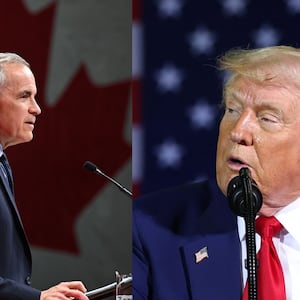The United States' recent move to impose reciprocal tariffs under the Trump administration has sent shockwaves through the global economy. Thailand, which has the 11th largest trade surplus with the US, is facing a 36% import tariff hike -- a development that warrants utmost concern by our policymakers. The US remains Thailand's largest export market, with exports reaching a value of 1.
93 trillion baht in 2024. The hyper tariff, therefore, is expected to have a serious impact on Thai exports, particularly on the country's already vulnerable agricultural sector. Agricultural products form a major component of Thailand's exports to the United States, which in 2024 were valued at US$1.

9 billion -- the third largest market, following China and Japan. Despite these impressive figures, Thailand's agricultural sector continues to struggle with low productivity and efficiency. Rice production, in particular, dominates agricultural land use -- covering 65.
4 million rai, or 43.7% of all farmland -- and engages the largest share of the agricultural workforce, but still delivers relatively low yields compared to global competitors. Increased US tariffs could hit sensitive agricultural products such as pork, animal feed corn, and soybeans -- products which our farmers make for local consumption.
A major concern is Thailand would be asked to import similar farm products from the US. That will affect countless farmers. Equally worrying is the potential redirection of Chinese goods through Thailand for re-export to bypass US tariffs.
Such a trend could damage Thailand's export reputation, especially if products labelled "Made in Thailand" fail to meet quality expectations. There is also a risk that Thai producers will lose market share to Chinese firms that relocate production facilities to Thailand. So far, the Paetongtarn government has responded to such weighty challenges by forming "Thai team" -- a negotiating team to explore potential trade-offs with Washington.
Thailand is said to be proposing more farm, weapon and energy imports from the US and more investment from Thai companies in the US in return for tariff reduction. While the back-and-forth strategy seems rational, such trade negotiations must be undertaken with extreme caution. In the past week, Agriculture Minister Narumon Pinyosinwat warned our trade negotiators against using the agricultural sector as a bargaining chip to secure benefits for other industries, many of which may be foreign-owned and merely based in Thailand.
Agricultural exports are not just numbers, she said. They represent real Thai people, families, and communities. In the short term, the government must implement protective measures to shield vulnerable farmers from the tariff fallout.
But the long-term solution lies in structural reform. Thai agriculture must become more productive, innovative, and market-driven. Research and development, higher yields, crop diversification, and access to new markets are critical to building resilience.
For decades, successive governments have neglected the root causes of agricultural stagnation, instead relying on subsidies and short-term political tools. The US may have granted a 90-day delay, but this is only a brief reprieve. Thailand must act now: not just to shield exports, but to protect the agricultural sector at its core.
Farmers are vital to the economy and food security. Safeguarding their livelihoods, while pushing for long-term reform, must be a national priority..
Politics

Trade talks need care

The United States' recent move to impose reciprocal tariffs under the Trump administration has sent shockwaves through the global economy. Thailand, which has the 11th largest trade surplus with the US, is facing a 36% import tariff hike -- a development that warrants utmost concern by our policymakers.















